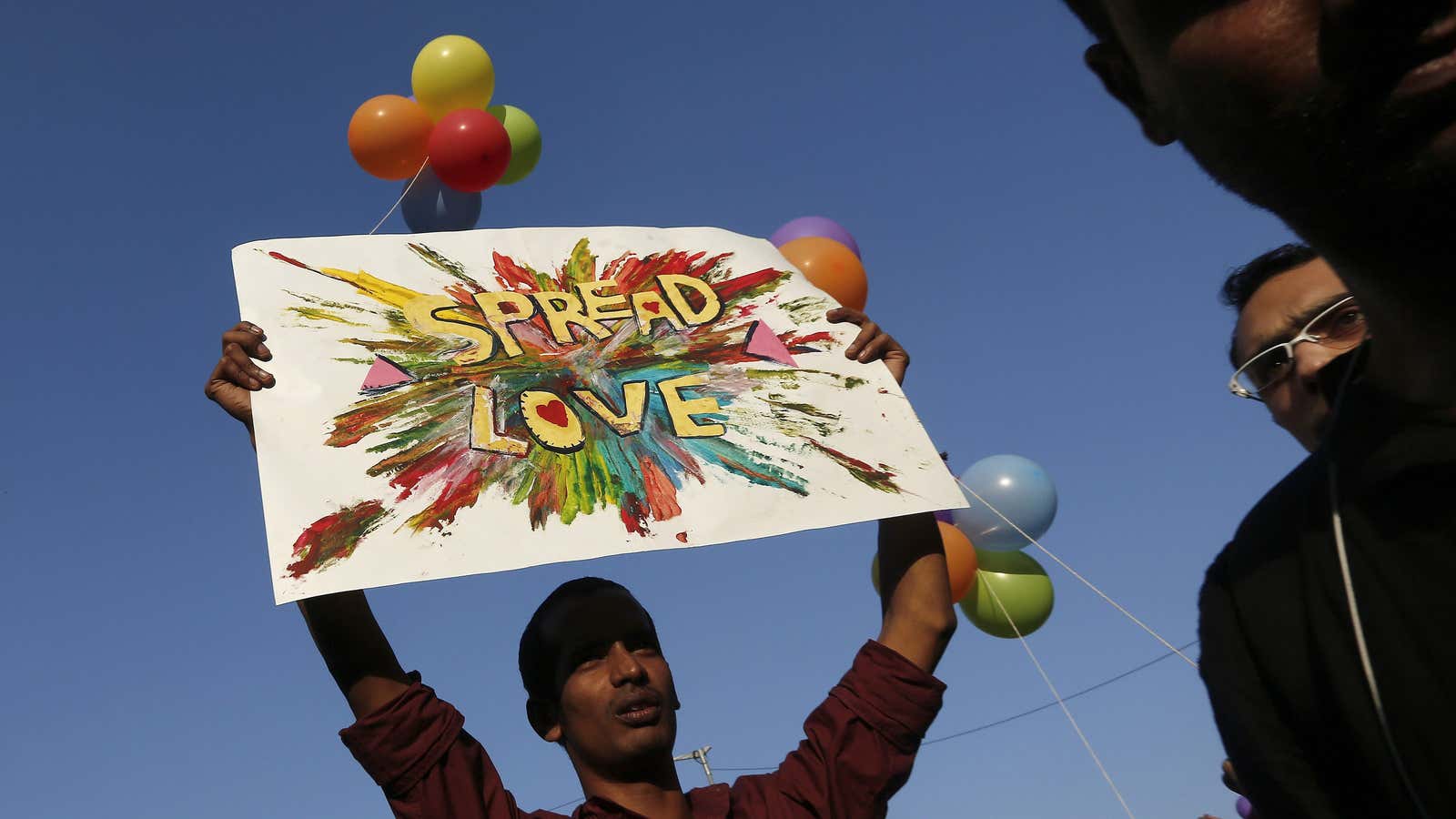Dating in India is hard. It’s harder if you’re gay. Transgender persons are, arguably, the worst off.
In recent years, dating websites and apps such as Tinder have offered users the option to list as a transgender person. However, that has done little for the community. Atlanta-based queer publication Wussy Mag even described Tinder for trans women as “digging through the bargain bin.”
“The rejection rates of transgender folk were very high in terms of responses to messages,” David Ronald Minns, 46, told Quartz.
In October 2019, UK-based Minns launched Butterfly, an app for people, of all genders, interested in dating a transgender person. “It was clear that an app that put transgender folk first would have a place in the crowded marketing of online dating.”
Butterfly currently has over 42,000 users across two dozen countries including Australia, Canada, France, Germany, Israel, New Zealand, Spain, the UK and the US. On Jan. 6, it debuted in India.
Users can not only select from a comprehensive array of gender definitions (24) and sexuality options (10), they can also change it at any time. For example, a person may start as a “gender questioning bisexual” before deciding on “MTF (male-to-female transgender) straight.”
As of 2019, there are an estimated 500,000 trans people in India—a minuscule share of the country’s 1.3 billion population. In the US, merely 1% of the population identifies as the third gender. On Butterfly, though, their representation is high.
The larger goal here is to integrate the so-called “other” into the mainstream.
Across cisgender dating apps, users often use terms such as “ladyboy” and “she-male,” which are considered offensive by the trans community. “I feel most of the transgender apps have been designed to make trans folk a fetish item rather than a person looking for a relationship,” said Minns.
In the next update to Butterfly, Minns plans to build a dictionary of offensive terms—as defined by its own users—and flag them in messages and profiles. This way, the app can increase awareness interactively in a country where trans kids are often abandoned by families, jobseekers are denied employment, and worse, people are killed over their chosen gender and sexuality.
The first step, though, is to create a secure environment for the still-slighted transgender population to interact.
Privacy first
Although Section 377 of the Indian penal code, which criminalised homosexuality, has been revoked, complete acceptance of the non-binary gender is yet to arrive. The Transgender Persons Act cleared by parliament in November even renders transgender people as second-class citizens, members of the community argue.
With the lines blurred, user privacy is top priority for an app like Butterfly. It is maintaining this sanctity with a host of features:
- No forced social network sign up like linking your Facebook account.
- The only personal information required when creating an account is an email address. The app/site even suggests that users create a new email address for the purpose of online dating.
- Profile photos are optional and users can upload and crop their faces from pictures if they wish.
- Private messages expire and are erased from the servers after 30 days so personal data is not left for years on live servers or backup archives.
- GPS locations are approximated when stored in the database and only distances are sent back to the app. This is in contrast to the longitude and latitude location tracked by several dating apps.
- Passwords are hashed with a method called BCrypt—the password hash takes about 200 years to be decoded, Minns claims.
- Usernames have to be selected from a list of 20,000 pre-approved first names to ensure no one can give away their full name.
- Instead of date of birth, the app only asks users for age. “I feel it’s better for a user to update their age once a year than give away information that is used to validate identity for a bank account,” Minns said.
